Premier League: Ten things we learned from 2013-14 season
- Published
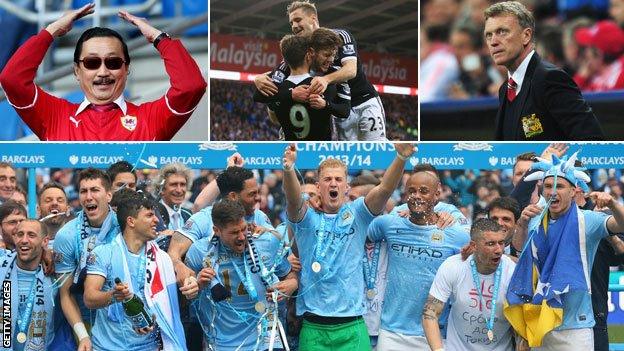
1. It takes a special man to manage Man Utd
The failure of David Moyes in his attempt to successfully continue the dominance of the Sir Alex Ferguson era proved Manchester United are no ordinary club and managing them is no ordinary job.
Moyes arrived at Old Trafford with a fine body of work in 11 years at Everton. He could not boast a trophy but there was a recognition that he had most of the qualities required to do a decent job almost anywhere in the Premier League.
United, though, are not almost anywhere. Moyes seemed almost grateful to be gifted the job by Ferguson, then consumed by its unique pressures and expectations, unable to grasp the demands of the club and its supporters - not just in playing style but the positive attitude and body language demanded.
In the end, he was a beaten, broken manager and failed to last the season. Put simply, it takes a manager of unbreakable confidence - arrogance almost - and a concrete-clad self-belief that he is in his rightful place at Old Trafford.
And in Louis van Gaal, whose appointment is expected to be confirmed imminently, United will hope they have that man. He is not shy in trumpeting all the qualities above. He has managed the likes of Barcelona and Bayern Munich - he will not be daunted by United.
In Moyes's defence, the man who succeeded Ferguson was always following the toughest act. The man after the man after may have it easier - but he is being asked to tame a unique football beast.
2. Young English talent is alive and well

The publication of Greg Dyke's report into how to improve the future for England's national team and the future for young English talent should not disguise the fact that this section of the game is currently alive and well.
There is an outstanding young - and relatively young - generation of English talent who have been playing regularly in the Premier League this season, players such as Raheem Sterling, Daniel Sturridge, Jordan Henderson and Jon Flanagan at Liverpool.
Everton's Ross Barkley has shown flashes of rare brilliance this season and will surely become a world-class talent, while his teenage team-mate John Stones is an elegant ball-playing defender with a big England future.
On the south coast at Southampton, teenage left-back Luke Shaw is coveted by all the top clubs and is the natural successor to Leighton Baines and Ashley Cole in the England side. Adam Lallana has been so outstanding this season that he is heavily tipped to start for England at the World Cup in Brazil.
Arsenal's Alex Oxlade-Chamberlain is another whom England will count on for years and the best may yet be to come from team-mate Jack Wilshere.
Further down the ladder, Patrick Roberts at Fulham and Everton's England under-17 captain Ryan Ledson are also regarded as bright hopes for club and country.
Young talent does exist and has been encouraged and matured by managers such as Brendan Rodgers and Roberto Martinez - with the right handling from England's manager they can form the foundations of that bright future.
3. Manager sackings still the biggest gamble

The rewards for success and penalties for failure in the Premier League have only sharpened the appetite for instant results - and the desire of owners and chairmen to make swift managerial alterations.
Nine Premier League clubs have instigated managerial changes this season - Fulham have had three different bosses - and the three relegated clubs are in that group.
The appointment of Tony Pulis in succession to Ian Holloway at Crystal Palace has been a spectacular story of success and survival - but look elsewhere and others can consider the wisdom of their strategy from the safe distance of the Championship.
Fulham is the prime example of a club paying the price for complete instability, with new chairman Shahid Khan suffering a desperate first term in control. He sacked Martin Jol in December and replaced him with Rene Meulensteen - who was on his way himself in February and replaced by Felix Magath.
End result? Relegation.
The same goes for Cardiff City after owner Vincent Tan ousted the man who gained them promotion, the popular Malky Mackay, and brought in rookie Ole Gunnar Solskjaer.
Norwich City's change was borne out of complete desperation and the sudden realisation they were sleepwalking towards the Championship. They sacked Chris Hughton with five games left, leaving youth-team coach Neil Adams to preside over the last rites.
West Bromwich Albion just survived but their replacement of the highly regarded Steve Clarke with Pepe Mel also courted relegation until virtually the last moment, a fact which contributed to Mel's departure on Monday.
A change of manager remains the biggest gamble - and as Norwich, Cardiff and Fulham will attest, there is not the slightest guarantee of success.
4. Liverpool are on the way back under Rodgers

There will be understandable disappointment at Liverpool that a title they could almost reach out and touch after 24 years has ended up at Manchester City.
Once those emotions have subsided they will recognise that one of the great footballing institutions is on the way back to what their fans regard as its rightful status under manager Brendan Rodgers.
It is a sign of their progress under Rodgers that a season that started with hopes (no more than that, if truth be told) of moving into the top four ended with disappointment at not claiming the title on the final day of the season.
Liverpool have, along with Manchester City, been the most attractive attacking team in the country, playing some sublime football and handing out severe beatings to close rivals such as Manchester United, Arsenal, Everton and Spurs. They have been a delight for the purists.
Rodgers and his players will learn and mature from this experience - with the knowledge that their defence must improve being a major lesson.
They will be all the better for this season, the optimism will be off the scale at the start of next season and Champions League football will be back at Anfield.
Title or no title, it has been a job superbly done.
5. Beware the dodgy big-money buy

Mistakes are bad enough - very expensive ones by clubs that get relegated are even worse. Just take a look at Norwich City striker Ricky van Wolfswinkel and Fulham's disastrous £11m buy from Olympiakos, Konstantinos Mitroglou.
It has been all downhill for £8.5m Van Wolfswinkel - signed from Sporting Lisbon as the supposed answer to Chris Hughton's goalscoring problems - since a fortuitous opening-day goal against Everton.
He has never looked up to Premier League standard, while Fulham's signing of Mitroglou proved to be spectacularly misjudged.
The Greek has barely featured because of injury, marking him out as one of the worst signings of the season. The decision to allow Rene Meulensteen, a manager who was soon to be sacked, to invest so heavily was an equally ill-judged move.
Not only that - Norwich City and Fulham are now stuck with two expensive signings who, if they moved on, would command nowhere near their original fees.
6. Old ways can still be the best

It may be fashionable to go for the exotic-sounding name to lead your club, brought in from abroad and regarded as a visionary.
But one look at events at Selhurst Park this season tells you there is still a place for the time-served, experienced, pragmatic manager who knows his way around the game.
Tony Pulis was often damned with faint praise at Stoke City and yet anyone who attended the Britannia will tell you there was more to the Potters than met the eye.
And after his appointment at Palace, Pulis delivered a masterclass in the sort of management needed to rescue a club and their season.
Pulis put a system in place to get the best out of the players he inherited, utilising strengths of width, pace and power to revive a season that looked all over when he arrived.
The plaudits often go to managers at the sharp end of the Premier League but Pulis has done a job that can be compared with any this season.
7. The cult of the owner continues

Remember the old saying that the game is about players and fans? Not any more, it seems, as owners have claimed their share of the headlines this season.
Vincent Tan was allowed to get away with changing Cardiff City's colours from their famous blue to red while the club were heading towards the Premier League. But what turned the tide against him was sacking manager Malky Mackay, the man who took them there and was so highly regarded by fans, after a poor start to the season.
It was a bitter parting and it is hard to see how Tan's relationship with Cardiff's fans can recover, especially after relegation.
Shahid Khan has had a torrid time at Fulham. Arriving with the usual ambitious talk, he has presided over three managers and a relegation. What will be his next step? Will he stick around if tempted by an offer?
And at Hull City, owner Assem Allam faced the anger of fans by flying in the face of tradition as he pursued a name change to Hull Tigers, a move which has been rejected by the FA council.
But to his credit he appointed a good manager in Steve Bruce, supported his wise purchases of Shane Long and Nikica Jelavic in the January transfer window and can now look forward to an FA Cup final appearance against Arsenal.
8. Martinez is the real deal

When Roberto Martinez was appointed as Everton manager many, including this writer, were still to be convinced.
Was this not the man who was a perennial relegation fighter at Wigan Athletic? Or had he actually performed miracles in keeping them up until last season, winning the FA Cup as compensation?
The answer has been delivered in a hugely impressive first season at Goodison Park, where he has taken the Toffees up the table into fifth place, returned them to Europe in the Europa League and also secured their best Premier League points haul. They were still Champions League contenders with two games of their season left.
And he has done all this while transforming Everton from a team noted for its organisation, work ethic and obduracy into one of the most attractive, passing, easy-on-the-eyes teams in the top flight.
9. Life is never dull in the north-east

Never turn your back for a minute on Newcastle United and Sunderland. You will always miss something.
At Newcastle United, a fine start to the season descended into the chaos and rancour that has marked the club's history far too often.
From manager Alan Pardew head-butting Hull City's David Meyler - receiving a seven-game ban on top of a £100,000 club fine - to a dreadful losing streak that led to a mass walk-out at St James' Park during the win against Cardiff, the Magpies have once against proved dysfunctional.
And what a story at Sunderland after Gus Poyet took over from Paolo Di Canio. The banner read "Miracles Happen" and the Uruguayan has performed something close to a footballing version.
Seven points adrift at the bottom with away games to come at Manchester City, Chelsea and Manchester United, the Black Cats drew the first and won the others before confirming survival with a win against West Bromwich Albion.
You can say plenty of things about football on Tyneside and Wearside, but you can never say that it is dull.
10. The best team always win the league
Margins may be fine and hard luck stories may be told, but the best team always win the Premier League - and they were Manchester City this season.
Liverpool have rivalled them for dazzling football but City's squad and team is currently more complete and Brendan Rodgers must buy wisely this summer, with defensive strengthening a priority.
City manager Manuel Pellegrini has been a dignified Premier League presence, applying experience and expertise to a squad assembled for vast sums, but Rodgers is astute enough to learn from this season and regroup ahead of next season.
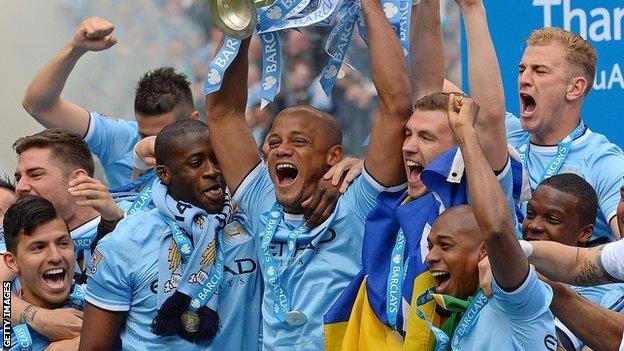
- Published11 May 2014
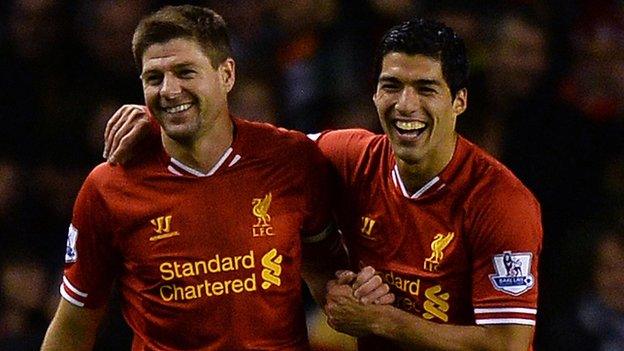
- Published11 May 2014
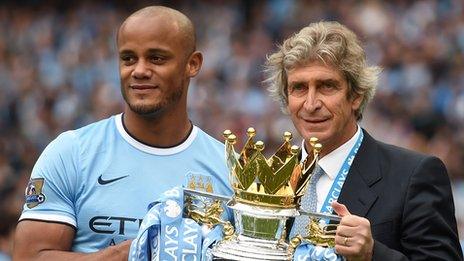
- Published11 May 2014
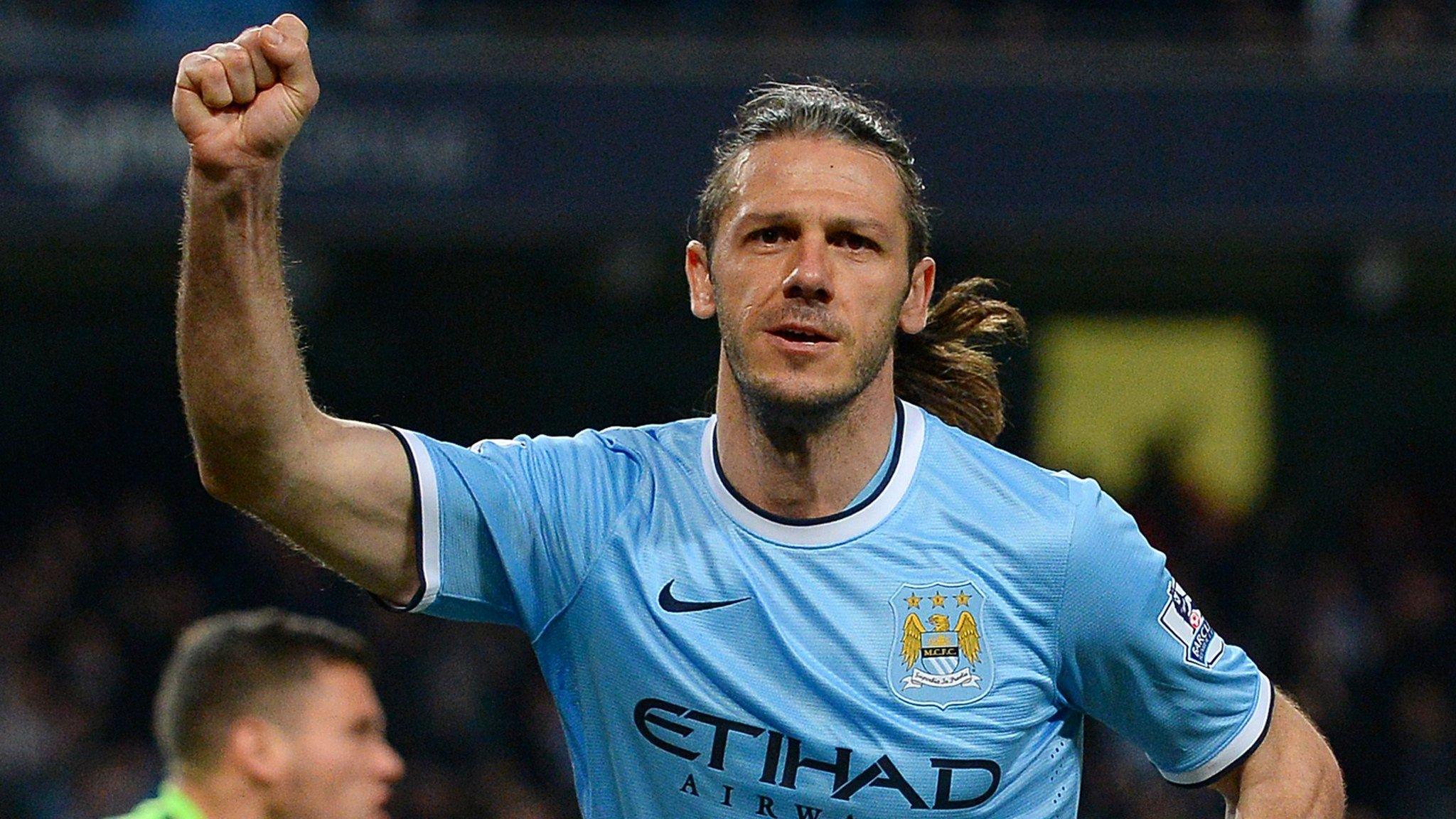
- Published7 June 2019
